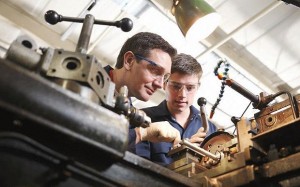Addiction is a mainstream concept that concerns everyone. Even though we are not all addicted, it is important we have a good idea on how it works because anyone can get addicted. Addiction has the capacity to affect anyone irrespective of who you are.
Now, people who are more susceptible to being addicted are those who have the technical mindset. They were probably not born this way but over time, they found an interest in the technical field and their brains had to adjust for this purpose.
Technicians and Engineers do not have much contact with their emotional side, they prefer connecting with logical and concrete concepts, particularly things that look mechanical to them. With this, you can infer that these set of people can easily be predictable and also stable. It also implies that when the need to be emotionally available arises, they will be absent.
When someone who is mechanically inclined becomes addicted, it is usually very difficult to break. One of the major reasons for this is, they are blind to the fact that they have psychological and emotional faculties. So, in reassessing them, they are going to find it very difficult.
Technicians and Engineers are intelligent sets of people but they are susceptible to being addicted. Some parts of their brain are well developed and other parts are stunted. So, since they are not all-rounded, there is a strong chance for them to become addicted irrespective of how logical they perceive their actions to be.
The emotional faculty of a technician and engineer is underdeveloped and this is the side that connects with the addiction tendency. They feel everything is under their control without realizing that they are caught up in their own mess.
Also, technically-minded individuals are vulnerable to having reduced production of dopamine. This signifies that the chemical produced in their brain is not enough to grant the pleasure needed. This is because their emotional faculties are underdeveloped compared to other aspects of their brain.